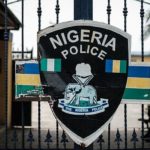|
Getting your Trinity Audio player ready...
|
The leaders of the Economic Community of West African States (ECOWAS) have upheld earlier suspension of Guinea from the bloc and imposed new travel bans and assets freeze against the army rulers.
This was the outcome of the 2nd Extraordinary Summit of the ECOWAS Authority of Heads of State and Government on the political situation in the Republic of Guinea held in Accra, Ghana yesterday. Nigeria’s Vice President Yemi Osinbajo represented President Mohammadu Buhari at the meeting.
“In six months, elections should be held,” ECOWAS Commission President Jean-Claude Kassi Brou said in a statement.
He said the “Authority decided to uphold the suspension of Guinea from all ECOWAS governing bodies until the restoration of constitutional order; to ensure the conduct of presidential and legislative elections within six (6) months in order to restore constitutional rule in the Republic of Guinea; and to impose sanctions, in accordance with extant ECOWAS Protocols, of travel bans on the members of the CNRD and their family members and of freeze of their financial assets.”
ECOWAS also called on the African Union, the European Union, the United Nations, and other multilateral and bilateral partners to support the implementation of these sanctions and to ensure that no member of the CNRD is allowed to contest in the presidential election.
“The Authority calls on the African Union, the United Nations and development partners to endorse the decisions and support the restoration of constitutional rule in the Republic of Guinea,” Jean-Claude Kassi Brou said.
The bloc also piled more pressure on Mali’s transitional government, demanding they stick to an agreement to organise elections for February 2022 and present an electoral roadmap by next month, according to the post-summit communique.
Anyone in Mali hindering preparations for the elections faces the same sanctions as those imposed in Guinea, it said.
“The Authority remains deeply concerned about the slow pace of preparations for the elections scheduled for late February 2022 in the Republic of Mali.
“The Authority reiterates its demands for strict adherence to the transition timetable leading to the effective conduct of elections within the non-negotiable deadline of February 2022. To this end, the Authority calls on the transitional authorities to submit, by the end of October 2021 at the latest, the timetable, for setting out the essential steps to be taken for the February 2022 elections. It insists on the implementation of only the necessary reforms for the conduct of elections on the agreed date.
“The Authority decides to impose targeted sanctions against persons or groups of persons whose actions have a negative impact on the transition timetable, as decided by the ECOWAS Heads of State and Government. These sanctions would include a travel ban on such persons and their family members and the freezing of their financial assets. To this end, the Authority instructs the President of the ECOWAS Commission to compile and submit a list of such persons and groups of persons.
“The Authority strongly condemns the continued arrest and detention of political leaders and opponents by the transitional authorities. It also demands that the issue be handled in line with the rule of law and respect for human rights,” the Leaders said in the statement.
Regarding security, the Authority strongly condemned the decision of the transitional authorities to hire private security companies in Mali and is greatly concerned about its consequences on the deterioration of the security situation in Mali and the region as a whole.
Leaders who took part in the summit hailed this more hardline stance. West and Central Africa has seen four coups since last year – political upheaval that has intensified concerns about a backslide towards military rule in a resource-rich but poverty-stricken region.
Soldiers behind the September 5 coup have said they ousted Conde because of concerns about poverty and corruption, and because he was serving a third term only after altering the constitution to permit it.
ECOWAS already has said it will impose penalties on Guinea’s military rulers unless they immediately release Conde, who has been held at an undisclosed location since the coup.
Meanwhile the coup in Mali was largely triggered by a security crisis, which has seen militants linked to al Qaeda and Islamic State extend their influence across the north and centre of the country.
The new Malian authorities’ pledge to hold presidential and legislative elections early next year has been undermined by their failure to meet various deadlines, including the start of voter roll updates and the presentation of a new constitution.
The transition was dealt a further setback in May when the colonel who led the initial coup, Assimi Goita, ordered the arrest of the interim president and then took over the role himself.
Ghana’s President Nana Akufo-Addo, who is ECOWAS chairman, had said in remarks before a closed-door session that he hoped the heads of state will help offer durable solutions to the crisis.




